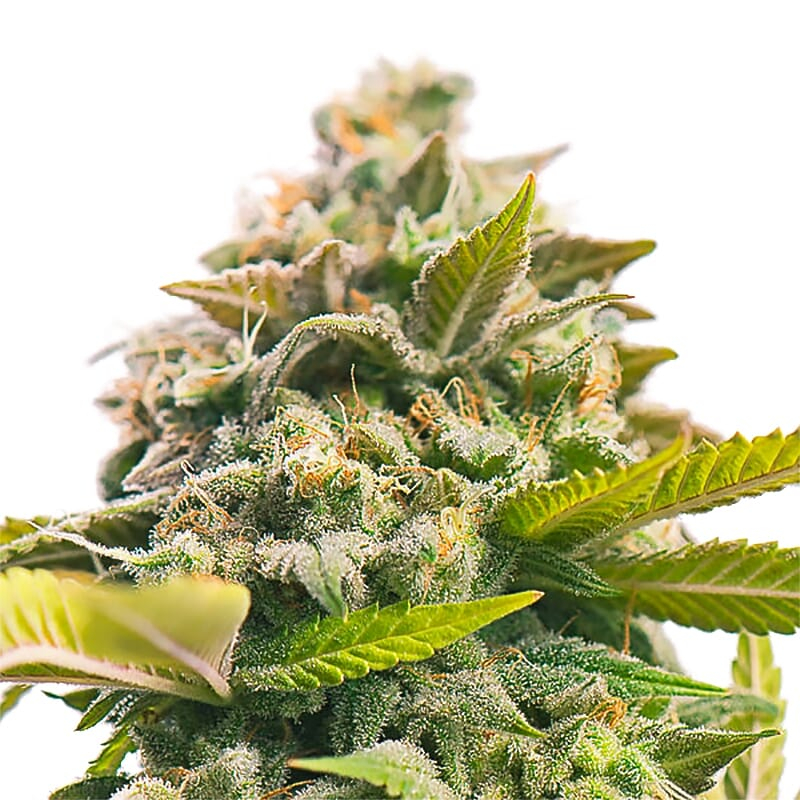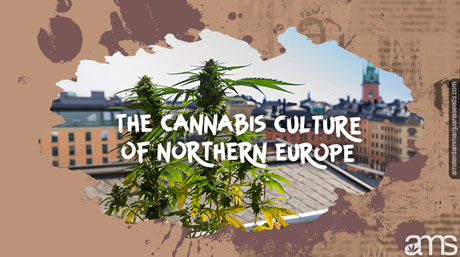The story of cannabis, an ancient plant steeped in millennia of cultural and medicinal history, is currently experiencing a radical transformation. For much of recent history, it’s been maligned, dismissed, or outright criminalized, often cast into the shadows of public consciousness. However, in Southern Europe, a resurgence of interest is underway. Like a phoenix rising from the ashes, cannabis is stepping out of the darkness of its taboo past and into the spotlight of medical research, and therapeutic applications.
As increasing numbers of Southern European countries explore the potential benefits of this versatile plant, they are setting the stage for a new era of acceptance and scientific curiosity. This progressive trend is fueled by promising clinical trials, anecdotal evidence from patients, and a burgeoning cannabis industry ready to meet rising demand. The shift is not merely a legislative one but rather represents a profound cultural and societal change.
Cannabis is no longer just the subject of hushed whispers and furtive glances. Instead, it has become a topic of open conversation in medical conferences, legislative assemblies, and public forums. From Athens to Madrid, Rome to Lisbon, the narrative surrounding cannabis in Southern Europe is changing. Scientists, physicians, and patients alike are advocating for a more nuanced understanding of cannabis, recognizing its potential therapeutic benefits while acknowledging the need for further research to fully comprehend its complexities. This evolving discourse underscores a dynamic transition in the region’s approach to cannabis, shifting it from a controversial substance to a potential cornerstone of future therapeutic strategies.

Portugal: Pioneering Cannabis Decriminalization
Portugal’s journey in redefining cannabis policy is nothing short of remarkable. In 2001, the small Iberian nation chose to break away from conventional drug policies, decriminalizing all drugs in a move that was both bold and controversial. This decision, driven by a public health perspective rather than a punitive one, shifted the focus from criminalization to prevention, treatment, and harm reduction.
This policy led to a significant decrease in drug-related deaths and HIV infection rates and increased the number of drug users seeking treatment. By recognizing drug use as a health issue rather than a criminal offense, Portugal effectively reduced the stigma associated with drug addiction, transforming the lives of thousands of citizens and offering them a new path toward recovery.
The impact of these policies was so profound that it positioned Portugal as a compelling case study for global drug policy reform. Other countries began to take notice, studying the Portuguese model, and considering how they might implement similar policies within their own borders. Portugal’s innovative approach demonstrated that it was possible to address drug use effectively and humanely, without resorting to punitive measures.
In 2018, Portugal once again demonstrated its progressive stance on drug policy by approving the use of medical cannabis. This significant step made Portugal one of the first countries in Southern Europe to provide a clear legal framework for the medical use of cannabis. This landmark decision wasn’t just about allowing the use of cannabis for medicinal purposes; it was about recognizing the potential of cannabis as a therapeutic tool, thus endorsing its scientific validity and therapeutic potential.

As a result of these progressive policies, Portuguese cities like Lisbon and Porto have rapidly become hotspots for the burgeoning medical cannabis industry. These cities are not only hosting academic conferences where the brightest minds in the field share their latest findings, but they are also fostering a vibrant startup culture focused on cannabis research and development.
Institutions like the University of Coimbra, with its long-standing tradition in life sciences research, are also contributing to the growth of the sector. They’re conducting pioneering studies on cannabinoids, further expanding our knowledge of the plant’s therapeutic potential.
The facilities for cultivating medical cannabis are flourishing in Portugal, taking advantage of the country’s favorable climate conditions. This industry growth is creating new opportunities, both in terms of jobs and economic output, contributing to the country’s economic resilience.
In short, Portugal’s progressive approach to drug and cannabis policy has resulted in a comprehensive, integrated approach to public health, economic growth, and scientific discovery. It stands as an example of how societal attitudes and legislative boundaries can shift when driven by empathy, scientific understanding, and a strong commitment to public health and individual well-being.
Spain: A Complex Landscape for Cannabis Legislation
Spain’s story with cannabis is indeed a unique and somewhat intricate one. Unlike Portugal, Spain’s legal framework around cannabis exists within a realm of ambiguity. Despite this uncertainty, the country’s approach to cannabis has facilitated the growth of an underground, yet thriving, cannabis culture. Private use and cultivation of cannabis are decriminalized in Spain, which has allowed for an interesting cultural phenomenon to develop, that of Cannabis Social Clubs.
These clubs, which are non-profit associations, have emerged as a fascinating response to the lack of nationwide policy for the medical use of cannabis. They allow members to grow and share cannabis within a shared communal space. The rules are simple – cultivation is restricted to private areas, distribution outside the club is strictly forbidden, and consumption must be responsible and limited to adults. It’s a model that’s akin to private social clubs, where cannabis is the shared interest.
Operating in this legally grey area, these clubs have flourished, particularly in Barcelona. The city, known globally for its artistic and cultural heritage, has become a hub for these clubs, housing over 200 of them. Barcelona’s acceptance of these clubs reflects the city’s long-standing tradition of social activism and its liberal mindset.
The Cannabis Social Clubs are more than just places to consume cannabis. They serve as social meeting points, where discussions about cannabis – its benefits, drawbacks, and cultural significance – are encouraged. This dialogue is contributing to a broader understanding of cannabis and its role in society.

Further solidifying Spain’s vibrant cannabis culture is the Spannabis festival. Barcelona’s annual cannabis event is one of the world’s largest, attracting enthusiasts, growers, medical patients, and industry professionals from around the globe. The festival highlights the latest advancements in cultivation technology, research breakthroughs, and legislative developments.
However, the current legal ambiguity around cannabis in Spain is not without its challenges. The lack of a clear nationwide policy for the medical use of cannabis can complicate access for those who need it for therapeutic purposes. While some regional governments have made progress in medical cannabis legislation, the absence of a unified framework poses an obstacle for patients.
In conclusion, Spain’s relationship with cannabis is complex, marked by a contrast between its vibrant cannabis culture and its ambiguous legal framework. However, the growth and acceptance of Cannabis Social Clubs, alongside events like the Spannabis festival, signify a nation ready to redefine its cannabis narrative. The challenge lies in translating this cultural shift into comprehensive, clear, and supportive legislation that benefits all Spaniards.
Italy: From State Monopoly to Home-Grown Acceptance
In Italy, the evolution of cannabis legislation and the accompanying cultural shift have been progressive, albeit unconventional. The state’s initial involvement in cannabis cultivation was driven not by a desire to control or suppress its use but rather out of a tangible necessity. Italy’s need for affordable, accessible medical cannabis was thwarted by the high cost of imported products, making it a luxury few could afford.
In 2014, a unique solution emerged. The Military Pharmaceutical Plant in Florence, a state-run entity known for its history of producing niche pharmaceuticals, began cultivating cannabis. This state-led initiative was intended to combat the monopolistic prices of imported medical cannabis and to ensure that Italian patients had affordable access to this therapeutic plant. By growing cannabis domestically, Italy was not only able to significantly reduce costs but also ensured the quality and safety of the product, a critical aspect of any medical treatment.
This unique approach to solving a public health issue was successful. Domestic production helped to stabilize the market, ensuring that Italian patients could obtain medical cannabis at a reasonable price. It also set a precedent for state involvement in cannabis cultivation, a model that other nations have since studied for its effectiveness.
In 2019, the Supreme Court of Cassation, Italy’s highest court, issued a landmark ruling that pushed the country further towards cannabis acceptance. The court ruled that cultivating small amounts of cannabis at home for private use is legal. The ruling was a surprise to many, but it was also a recognition of the shifting attitudes towards cannabis within Italian society.
The implications of this ruling were considerable. It signified a significant shift in Italy’s legal stance on cannabis, and it spurred a vibrant and ongoing debate about cannabis politics and policy. In cities like Rome, Milan, and Florence, discussions about cannabis became common, with advocates, academics, politicians, and citizens alike engaging in dialogues about the future of cannabis in Italy.

This ruling also triggered a wave of research into the medical applications of cannabis. Universities and research institutions across Italy began conducting studies into the potential therapeutic benefits of cannabis and cannabinoids, further enriching the global knowledge base about this plant.
However, the ruling also sparked controversy. Some critics argued that it could lead to increased recreational use, while others feared that home cultivation might not guarantee the quality control necessary for medical use. Despite these concerns, the ruling stood, signifying a remarkable step forward in Italy’s journey towards full cannabis acceptance.
The case of Italy represents a unique path in the evolving cannabis landscape of Southern Europe. From state-led cultivation to court-approved home-growing, Italy’s journey has been both novel and successful. It serves as an example of how governments can and should involve themselves directly in providing solutions to public health issues.
At the same time, Italy’s approach to cannabis highlights the importance of clear, supportive legislation. The 2019 ruling was an encouraging step, but the need for a more comprehensive framework, one that covers all aspects of cannabis use – medical, recreational, and industrial – is clear.
As Italy continues to navigate its way through these issues, the potential for growth and development in the field of cannabis is immense. With increased research, dialogue, and openness, Italy could become a leading player in the global cannabis sector, both in terms of policy and industry.
In conclusion, Italy’s journey with cannabis, marked by state intervention, landmark court rulings, and vigorous public debate, shows a country grappling with the complexities of cannabis policy. But it is also a country moving steadily towards a future where cannabis is not only accepted but fully integrated into its medical, economic, and social fabric.
Croatia: The Adriatic Pioneer in Medical Cannabis
Just across the Adriatic Sea from Italy, the Republic of Croatia has also embarked on its journey towards the acceptance and integration of cannabis into its society and healthcare system. Croatia, a country known for its stunning coastline and rich history, has shown a promising approach towards cannabis, particularly concerning its use for medical purposes.
In 2015, Croatia took a significant step by legalizing the use of cannabis for medical purposes. This development was a substantial breakthrough, especially when considering the debilitating conditions it addressed. By acknowledging the therapeutic value of cannabis for severe illnesses like cancer, AIDS, and multiple sclerosis, Croatia demonstrated an enlightened, compassionate stance. These diseases are frequently associated with severe pain, discomfort, and decreased quality of life. The legalization of medical cannabis provided an alternative, potentially effective treatment for patients dealing with these challenging conditions.
However, Croatia’s approach towards medical cannabis goes beyond mere legalization. The country has striven to educate its citizens about the benefits and potential risks of medical cannabis, recognizing that successful integration of cannabis into the healthcare system requires a well-informed public. The capital city, Zagreb, has become a hub for such initiatives. Zagreb hosts various educational events and exhibitions focusing on medical cannabis, serving to inform, engage, and potentially shift societal perceptions of the plant.
These events provide a platform for medical professionals, patients, researchers, and the general public to engage in meaningful dialogue. They offer a place to learn about the latest scientific findings, share personal experiences, and discuss the future of medical cannabis in Croatia. This open discourse is critical in fostering a balanced, informed view of cannabis and its role in healthcare.

Croatian medical professionals, too, have shown a progressive stance. Increasingly, doctors are recommending cannabis as a viable option for pain management and symptom control. This shift signifies more than just acceptance; it is an endorsement of the potential therapeutic value of cannabis. It reflects a commitment from the medical community to explore all available avenues to improve patient care, comfort, and quality of life.
Moreover, Croatia’s decision to legalize medical cannabis has stimulated research into the plant’s potential therapeutic applications. Universities and research institutions across the country have initiated studies exploring various aspects of cannabis, including its efficacy, safety, and best use practices. This research will contribute to a more comprehensive understanding of cannabis and further cement its place in the medical landscape.
However, as with all the countries discussed, the path to cannabis acceptance in Croatia is not without its challenges. Legal ambiguities and regulations still need to be addressed, and public perception, while shifting, may still carry lingering stigmas and misconceptions. Addressing these issues will require continuous education, open dialogue, and progressive legislation.
In conclusion, Croatia’s journey with medical cannabis, from legalization to societal education, demonstrates a country committed to exploring the full potential of this historically controversial plant. Croatia’s forward-thinking legislation, coupled with ongoing education and research, holds promise for a future where cannabis is fully accepted and integrated into its healthcare system. With time, effort, and open dialogue, Croatia could become a model for other nations navigating their path towards cannabis acceptance.
However, the journey towards a fully inclusive cannabis policy isn’t without its challenges. Stigmas surrounding its use persists, and the regulatory landscape remains fragmented. Some countries still uphold stringent anti-cannabis laws, while others struggle to implement a cohesive national policy.
The changing cannabis landscape is also an interesting example of how core updates in law and society can impact public opinion and foster progress. As countries in Southern Europe continue to reform their cannabis policies, it will be essential to ensure these changes align with the latest scientific research and provide clear guidance for medical professionals and patients alike.
Finally, the product review aspect of medical cannabis, particularly CBD products, is another area that warrants attention. As the industry grows, it is critical to provide consumers with accurate, transparent, and trustworthy information about the products they use.
The rise of medical cannabis in Southern Europe is a dynamic, multifaceted narrative that weaves together politics, culture, and medicine. Its progression is a testament to the power of research, societal change, and regulatory updates in redefining the trajectory of a historically misunderstood plant.
FAQs about Cannabis in Southern Europe
What is the societal change surrounding cannabis in Southern Europe?
The story of cannabis in Southern Europe is currently experiencing a radical transformation, as the plant moves out of the shadows and into the spotlight of medical research and therapeutic applications. This shift represents a profound cultural and societal change, driven by promising clinical trials, anecdotal evidence, and a growing cannabis industry.
How did Portugal redefine its cannabis policy?
In 2001, Portugal broke away from conventional drug policies by decriminalizing all drugs, including cannabis, focusing on prevention, treatment, and harm reduction rather than criminalization. This progressive approach led to a significant decrease in drug-related deaths and HIV infection rates, while also reducing the stigma associated with drug addiction. Portugal further demonstrated its progressive stance by approving the use of medical cannabis in 2018, providing a legal framework for its therapeutic use.
How has Croatia integrated medical cannabis into its healthcare system?
Croatia legalized the use of medical cannabis in 2015, recognizing its therapeutic value for severe illnesses. The country has also prioritized public education to ensure a well-informed society. Initiatives in the capital city of Zagreb include educational events and exhibitions focused on medical cannabis, facilitating meaningful dialogue among medical professionals, patients, researchers, and the public. This commitment to education and research positions Croatia as a country dedicated to exploring the potential of medical cannabis.















